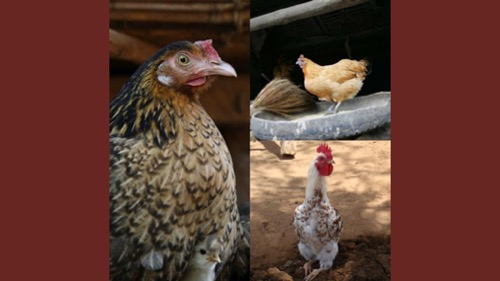ILRI’s Jimmy Smith on farm animal diversity for more sustainable and resilient global food systems
- From
-
Published on
25.09.18
- Impact Area

Jimmy Smith, director general of the International Livestock Research Institute (ILRI), this week made a short presentation at the annual meeting of the Food Forever Initiative held in Wilmington, Delaware, 23–24 Sep 2018. Food Forever is a global partnership to raise awareness on the importance and urgency of conserving and using agricultural biodiversity. The initiative works specifically to enhance the crop and livestock diversity that sustains global food production. Smith is one of 30 Food Forever champions advocating this important cause.
Smith spoke on the central importance of better conserving, characterizing and using the world’s remaining livestock diversity to ensure future food security in the face of climate and other changes.
Why care about livestock?
Livestock are critical for food and nutrition security, and thus to achieving SDG2 on zero hunger.
- Livestock-derived foods provide essential micronutrients that are either not found in plant-based foods, are present in lower concentrations or are less bioavailable.
- Livestock-derived foods are essential for many of the world’s most vulnerable people. Consumption of modest amounts of milk, eggs and meat is critical during the first 1000 days of life and continues to be very important for the development of children in their first 3000 days. But inclusion of these nutrient-dense foods in the monotonous diets of many poor people remains important throughout their adulthood also, particularly for women of child-bearing age and for the sick and elderly.
- Without livestock, as much as half of the developing world’s staple cereals and legumes could not be grown. Livestock-generated incomes provide the means to purchase essential farm inputs, manure replenishes soils and animal traction provides ploughing—all of which are essential for crop production.



![]()
Related news
-

CGIAR Multifunctional Landscapes at COP30: Advancing Adaptation and Nature-Based Solutions
Multifunctional Landscapes Science Program10.11.25-
Adaptation
-
Biodiversity
-
Environmental health
-
Environmental health & biodiversity
-
Mitigation
COP30 in Belém, Brazil is being heralded as a pivotal “COP of adaptation” and a…
Read more -
-

From bottles to solar pumps: how Cocoa farmers in Ghana are innovating to beat water stress
Sustainable Farming Science Program28.10.25-
Environmental health
Across Ghana's cocoa belt, the rhythm of the rains is no longer reliable. Once-predictable wet…
Read more -
-

SOILutions for Security: CGIAR at the 2025 Borlaug Dialogue
Multifunctional Landscapes Science Program22.10.25-
Biodiversity
-
Environmental health
-
Environmental health & biodiversity
-
Food security
-
Nutrition
From October 21–23, CGIAR will join global partners in Des Moines, Iowa for the 2025…
Read more -
